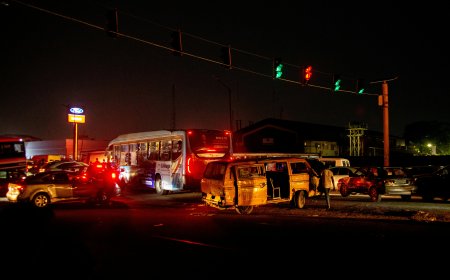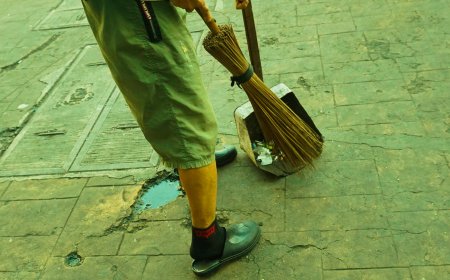Air Canada and Flight Attendants Resume Strike Talks
Air Canada and its flight attendants union return to the table after days of disruption, as 130,000 travelers face cancellations daily.

For tens of thousands of travelers crammed into crowded terminals across Canada this week, the sound of flight cancellation announcements has become routine. The strike by Air Canada’s 10,000 flight attendants—now in its third day—has grounded the nation’s largest airline at the peak of the summer travel rush. But late Monday night, a glimmer of progress emerged: for the first time since the strike began, the two sides resumed talks in Toronto with the help of a mediator.
The resumption of dialogue, though fragile, offers the first sign that compromise may be possible. Yet the situation remains tense, as the Canadian Union of Public Employees (CUPE) has vowed to stay off the job even after the strike was declared illegal.

A Strike Disrupting 130,000 Travelers Daily
The scale of the disruption is staggering. Air Canada estimates that roughly 130,000 passengers per day are being affected by rolling cancellations and delays. Families have been stranded at airports in Toronto, Montreal, Vancouver, and beyond. Business travelers have scrambled to rebook itineraries, while tourists—some with once-in-a-lifetime trips—find themselves stuck in limbo.
The strike, which began over the weekend, has thrown one of the busiest travel seasons into chaos. For many Canadians, the timing is particularly painful: August marks a high point for vacations before the school year resumes.
Why Flight Attendants Walked Out
At the heart of the dispute lies a mix of economic and workplace issues. According to CUPE, flight attendants are demanding:
- Higher wages to reflect inflation and the rising cost of living.
- Improved scheduling protections, as crew members say unpredictable hours leave them exhausted.
- Stronger job security guarantees, amid growing concerns over automation and outsourcing.
- Workplace safety improvements, particularly around unruly passengers and long-haul duty hours.
Air Canada counters that it has already offered competitive pay and benefits, arguing that the strike risks undermining the airline’s recovery from pandemic-era financial losses. Executives also point to mounting operational costs, from fuel prices to fleet maintenance, warning that meeting all union demands could jeopardize long-term stability.
Defying Return-to-Work Orders
Tensions escalated sharply when Canada’s Industrial Relations Board declared the strike illegal. The tribunal ordered flight attendants back to work, instructing union leaders to notify members by noon Monday. But CUPE leaders refused.
“We will not be returning to the skies,” said Mark Hancock, CUPE’s national president. “If it means fines, so be it. If it means jail, so be it. The solution has to be found at the bargaining table.”
The union had already ignored a separate weekend order to submit to binding arbitration. By standing firm, CUPE has turned the dispute into a high-stakes showdown—one that tests the limits of Canadian labor law.
The First Signs of Dialogue
Despite the legal standoff, Air Canada reached out late Monday to restart negotiations. Talks were held in Toronto with a federal mediator present. For passengers and employees alike, the move provided cautious hope that both sides are willing to inch toward compromise.
A union update described the talks as “a necessary step, but far from a resolution.” The airline, meanwhile, issued a brief statement confirming discussions but refrained from commenting on specifics.
What remains clear is that the strike will not end overnight. Air Canada has already extended rolling cancellations into Tuesday afternoon, suggesting that even if progress is made, recovery will take time.
Human Stories from the Terminals
Beyond the headlines, the strike has left thousands of personal stories in its wake.
At Toronto Pearson Airport, a family from Calgary sat on the floor near their piled luggage. They had planned a long-awaited European vacation, only to learn their connecting flight was canceled. “We saved for years,” said the mother, holding back tears. “Now we don’t know if we’ll even make it there.”
Nearby, business travelers typed furiously on laptops, rebooking flights on rival carriers—often at steep markups. One executive said his company had already spent thousands of dollars rerouting employees.
For flight attendants themselves, the strike is equally emotional. Many have taken to the picket lines outside Air Canada’s Montreal and Toronto offices, holding signs demanding respect. Some spoke of the toll long shifts and unpredictable schedules have taken on their families. “We love our jobs,” one attendant said. “But we can’t keep sacrificing our health and our families just to keep planes in the air.”
The High Stakes for Air Canada
As Canada’s largest carrier, Air Canada holds a central place in the country’s economy and connectivity. The strike comes just as the airline was regaining financial footing after years of pandemic-related losses. Analysts warn that prolonged disruption could cost millions of dollars daily and damage customer trust.
For travelers, alternatives are limited. Rival airlines like WestJet and Porter are already fully booked, while international carriers often rely on Air Canada for domestic connections. The result: long wait times, soaring ticket prices, and frustration across the board.
From an industry perspective, the dispute also highlights broader tensions in aviation. Airlines worldwide face staff shortages, rising costs, and increased union activism as workers push for better conditions after the pandemic.
Government Pressure Mounts
The federal government has so far urged both sides back to the table but has stopped short of imposing a settlement. Officials are under pressure to act quickly, as public frustration grows and the tourism industry warns of economic fallout.
In the past, Ottawa has intervened in high-profile transportation strikes, citing the need to protect the national economy. Whether that path will be taken here remains unclear. For now, mediators are the main bridge between the airline and its flight attendants.
What Happens Next?
The coming days will prove pivotal. Several possible scenarios could unfold:
- Breakthrough deal: Both sides agree on a compromise with mediator support, ending the strike.
- Extended standoff: Talks drag on, with rolling cancellations lasting weeks.
- Government intervention: Ottawa imposes binding arbitration or back-to-work legislation.
- Escalation: The union continues to defy legal rulings, sparking fines or arrests of leaders.
For travelers, the uncertainty is agonizing. Many are holding refundable tickets in the hope of rebooking once flights stabilize. Others are canceling trips entirely.
Conclusion: A Nation Watches
As Canadians refresh their phones for flight updates and stranded passengers trade stories in crowded terminals, one truth stands out: this is more than a labor dispute. It is a test of resilience—for workers seeking respect, for an airline seeking stability, and for a country that relies on the skies to stay connected.
Whether Monday’s talks mark the beginning of resolution or simply a pause in hostilities will be revealed in the days ahead. For now, the nation watches, waits, and hopes the skies clear soon.
FAQs
1. Why are Air Canada flight attendants on strike?
They are demanding higher wages, better scheduling protections, job security, and improved workplace safety.
2. How many travelers are affected by the strike?
Roughly 130,000 passengers per day face cancellations or delays, making it one of the most disruptive strikes in years.
3. Is the strike legal?
Canada’s Industrial Relations Board declared the strike illegal, but the union has defied orders to return to work.
4. Could the government intervene?
Yes. Ottawa could impose binding arbitration or back-to-work legislation if talks stall and disruption continues.
5. When will flights return to normal?
That depends on negotiations. Even if a deal is reached quickly, Air Canada has warned it may take days to stabilize schedules.
What's Your Reaction?
 Like
1
Like
1
 Dislike
0
Dislike
0
 Love
0
Love
0
 Funny
0
Funny
0
 Angry
0
Angry
0
 Sad
0
Sad
0
 Wow
0
Wow
0



































































